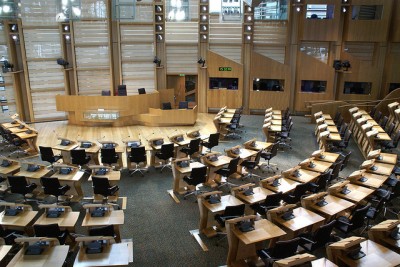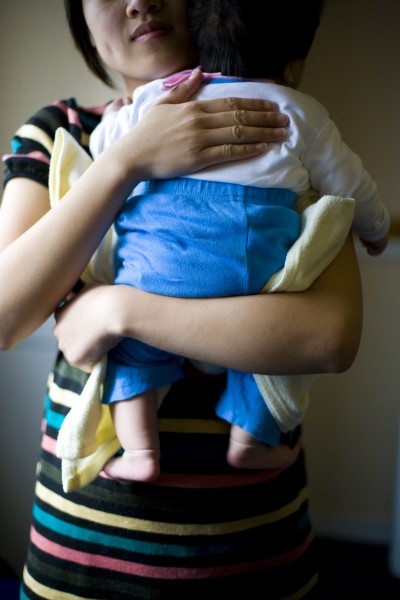Engender blog
#Powertothebump - pregnancy and maternity rights for young women

Here at Engender we frequently get calls, tweets and emails from women facing discrimination due to pregnancy and maternity. Many folk think that the campaign for pregnancy and maternity was a fight won long ago, but in fact women still face major problems staying, or re-entering the workforce if they become pregnant. The fact that discrimination is illegal is, unfortunately, not enough to prevent some employers from taking advantage, so it’s really important that women are supported to know, and fight for, their rights.
That’s why we’re really pleased to see the EHRC’s new #PowertotheBump Campaign. Read on to find out more, from Helen Miller Policy Manager at the EHRC :
Engender calls for a progressive law for Scotland.
With the news that control over abortion law is due to be devolved to the Scottish Parliament, Engender is calling for a progressive approach to abortion that reflects the fact that it a health issue that also underpins women’s autonomy and equality with men.
In July, Engender was one of several organisations to sign a joint statement urging caution over the devolution of abortion as part of the Scotland Bill. We are not opposed to the devolution of abortion to Scotland, but were concerned that the haste of the Smith process and the Scotland Bill itself may lead to a reduced timetable for discussing the content of any abortion law. We are disappointed that engagement with civil society, and the women’s sector, did not form part of the UK Government’s decision-making in seeking to amend the Scotland Bill.
Despite the flaws in the process, we are now keen to work with women’s and equalities organisations, trade unions and all political parties to ensure that abortion law in Scotland adequately reflect the needs and priorities of women in Scotland. Internationally, abortion law-making can be a highly politically charged process. We must take this opportunity to ensure that Scotland gets this right the first time, and that we create abortion laws with women’s dignity, autonomy, and wellbeing at their heart.
5 things you need to know about equality and today's Scotland Bill debate
 With amendments to the Scotland Bill falling like leaves, it doesn't seem likely that any of the positive equality amendments being debated on Monday are likely to make it into the statute books.
With amendments to the Scotland Bill falling like leaves, it doesn't seem likely that any of the positive equality amendments being debated on Monday are likely to make it into the statute books.
The (too) rapid progress of the Bill through the House of Commons means that some of the detail is passing in a bit of a blur. By any forecast, the use of some of the powers that are being transferred will happen within what seem to be extraordinarily narrow parameters. As we see the constraints on the Scottish Parliament in action there are likely to be additional awkward questions about whether the new Scotland Act can really be said to have delivered on the spirit of some of the commitments outlined in the Smith Agreement.
We think there are five important things to note about women's equality and today's debate.
Guest post: ‘Women and Children First?’ The reality of maternity care for Scotland’s refused asylum seekers
 By Vicky Glen
By Vicky Glen
For mothers in Scotland (and the world over), experiences of maternity care are key in influencing the overall experience of motherhood. Health policy has been a devolved matter since the creation of the NHS. As such, asylum seekers (including refused asylum seekers) are entitled to free primary and secondary health care in Scotland (in contrast with England and Northern Ireland, where refused asylum seekers may be required to pay for secondary health care, which can include maternity care). But do asylum seeking women experience a level of maternity care equal to that of other women living in Scotland?
It was this question that Sylvie Da Lomba of University of Strathclyde Law School and Nina Murray, Women’s Policy Development Officer at Scottish Refugee Council, sought to answer. While work had previously been conducted into the quality of maternity care for asylum seeking women in England and Wales, there was no primary focus upon the experiences of refused asylum seeking women. Previous work had already identified the severity of the health needs of asylum seeking women, with these needs exacerbated during pregnancy.
In light of the then proposed changes to access to healthcare under the Immigration Act 2014 (now a sad reality), and the challenging of asylum support levels by various third sector organisations (now perfectly exemplified in the case of Refugee Action v Secretary of State for the Home Department), the project aimed to assess: whether female asylum seekers were accessing free maternity care in Glasgow as ordinarily resident UK citizens (in line with Scottish government guidance); the extent and nature of any barriers to this access; and whether the access and quality of this care was in line with statutory, governmental and international human rights obligations.
Downloads
 Engender Briefing: Pension Credit Entitlement Changes
From 15 May 2019, new changes will be introduced which will require couples where one partner has reached state pension age and one has not (‘mixed age couples’) to claim universal credit (UC) instead of Pension Credit.
Engender Briefing: Pension Credit Entitlement Changes
From 15 May 2019, new changes will be introduced which will require couples where one partner has reached state pension age and one has not (‘mixed age couples’) to claim universal credit (UC) instead of Pension Credit.
 Engender Parliamentary Briefing: Condemnation of Misogyny, Racism, Harassment and Sexism
Engender welcomes this Scottish Parliament Debate on Condemnation of Misogyny, Racism, Harassment and Sexism and the opportunity to raise awareness of the ways in which women in Scotland’s inequality contributes to gender-based violence.
Engender Parliamentary Briefing: Condemnation of Misogyny, Racism, Harassment and Sexism
Engender welcomes this Scottish Parliament Debate on Condemnation of Misogyny, Racism, Harassment and Sexism and the opportunity to raise awareness of the ways in which women in Scotland’s inequality contributes to gender-based violence.
 Gender Matters in Social Security: Individual Payments of Universal Credit
A paper calling on the Scottish Government to automatically split payments of Universal Credit between couples, once this power is devolved to the Scottish Parliament.
Gender Matters in Social Security: Individual Payments of Universal Credit
A paper calling on the Scottish Government to automatically split payments of Universal Credit between couples, once this power is devolved to the Scottish Parliament.
 Gender Matters Manifesto: Twenty for 2016
This manifesto sets out measures that, with political will, can be taken over the next parliamentary term in pursuit of these goals.
Gender Matters Manifesto: Twenty for 2016
This manifesto sets out measures that, with political will, can be taken over the next parliamentary term in pursuit of these goals.
 Scottish NGO Briefing for UN Special Rapporteur on Violence Against Women
Joint briefing paper for the UN Rapporteur on Violence Against Women.
Scottish NGO Briefing for UN Special Rapporteur on Violence Against Women
Joint briefing paper for the UN Rapporteur on Violence Against Women.

Newsletter
Sign up to receive our newsletter here:
Sign up to our mailing list
Receive key feminist updates direct to your inbox: